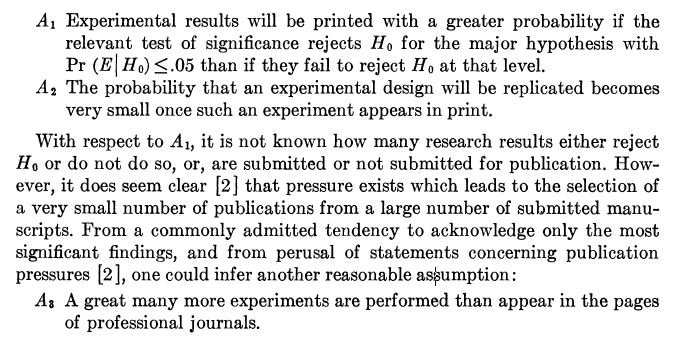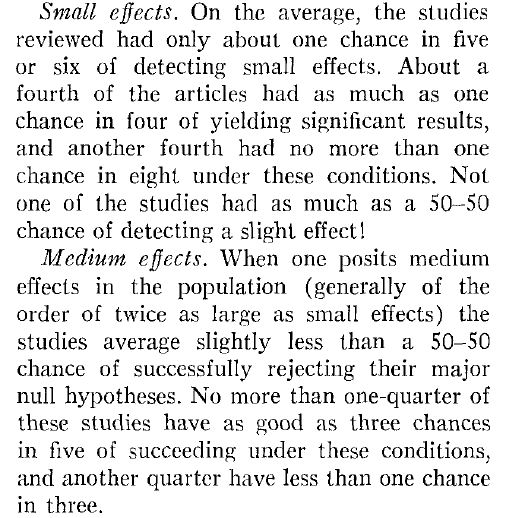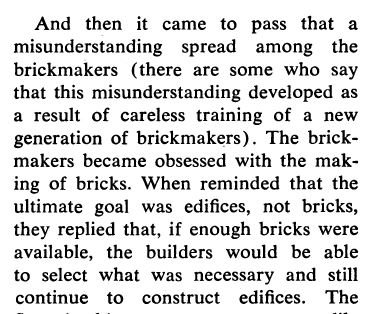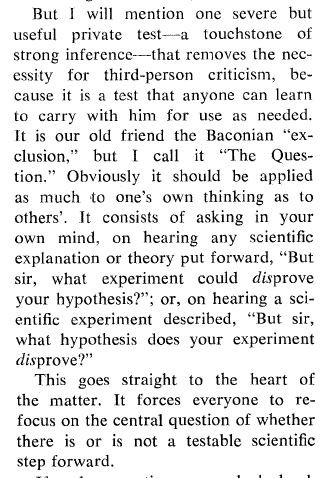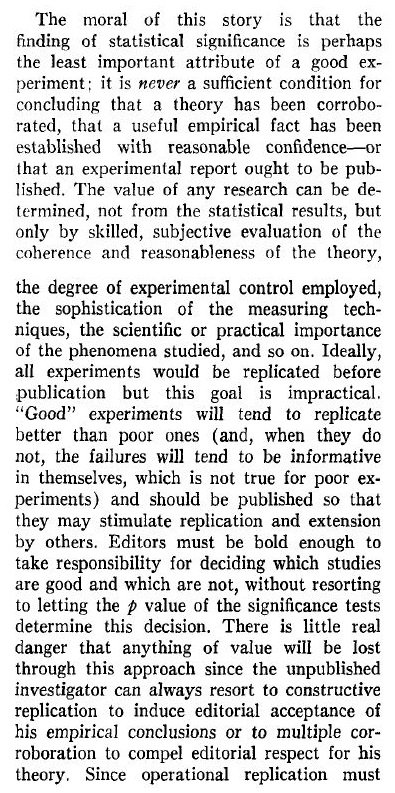Thesis: & #39;methodological crisis& #39; in science is NOT the sudden realisation of a problem. It is a well characterised problem which benefited hugely in recognition by a change in how scientists communicate and collaborate. Central issues were outlined clearly before 1970.
Meehl, 1967. The role of the & #39;cute& #39;, surprising, or counter-intuitive results as an eventual outcome for capitalizing on chance.
Lykken, 1968. The weakness of statistical significance in isolation, the need for replication, the central importance of methods, and a whole lot more.
Does all of the above form a coherent body of work that people read at the time? No idea. Probably not.
But - these papers do address, straightforwardly and in better prose than we& #39;re allowed to write now, the heart of issues that a lot of people feel blindsided by at present.
But - these papers do address, straightforwardly and in better prose than we& #39;re allowed to write now, the heart of issues that a lot of people feel blindsided by at present.
And they were written half a century ago.
Big props to @BrentWRoberts and @profsimons (and presumably other @improvingpsych people) for mugging up a list of papers on this topic that helped me fill the fairly substantial gaps in my knowledge on this.

 Read on Twitter
Read on Twitter